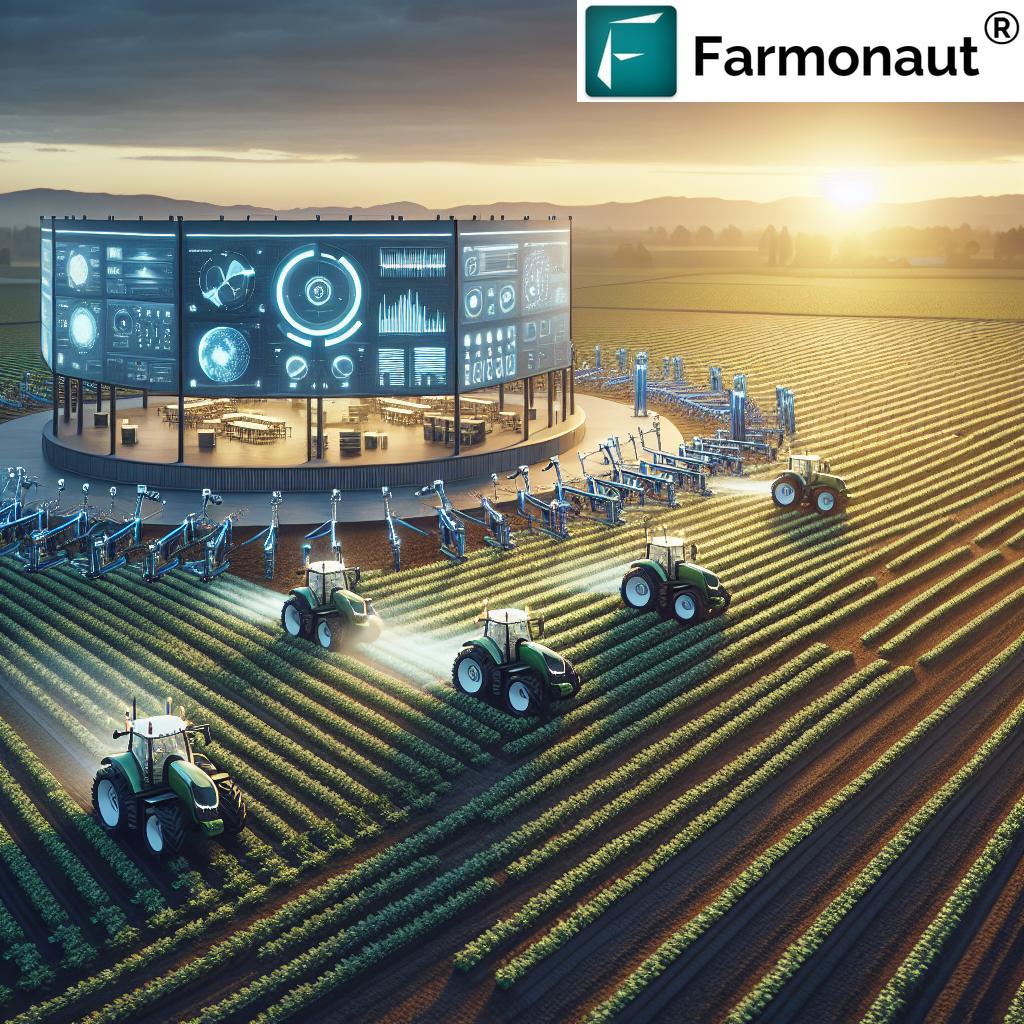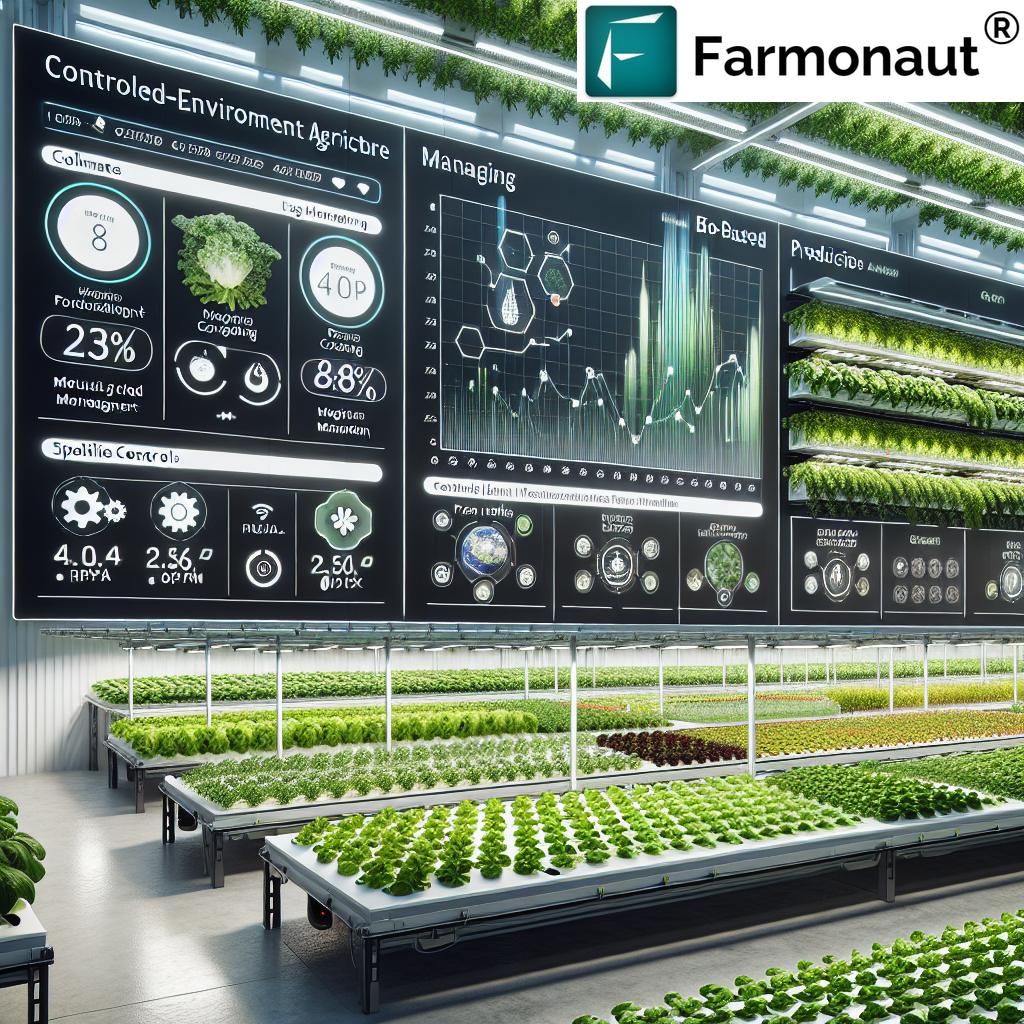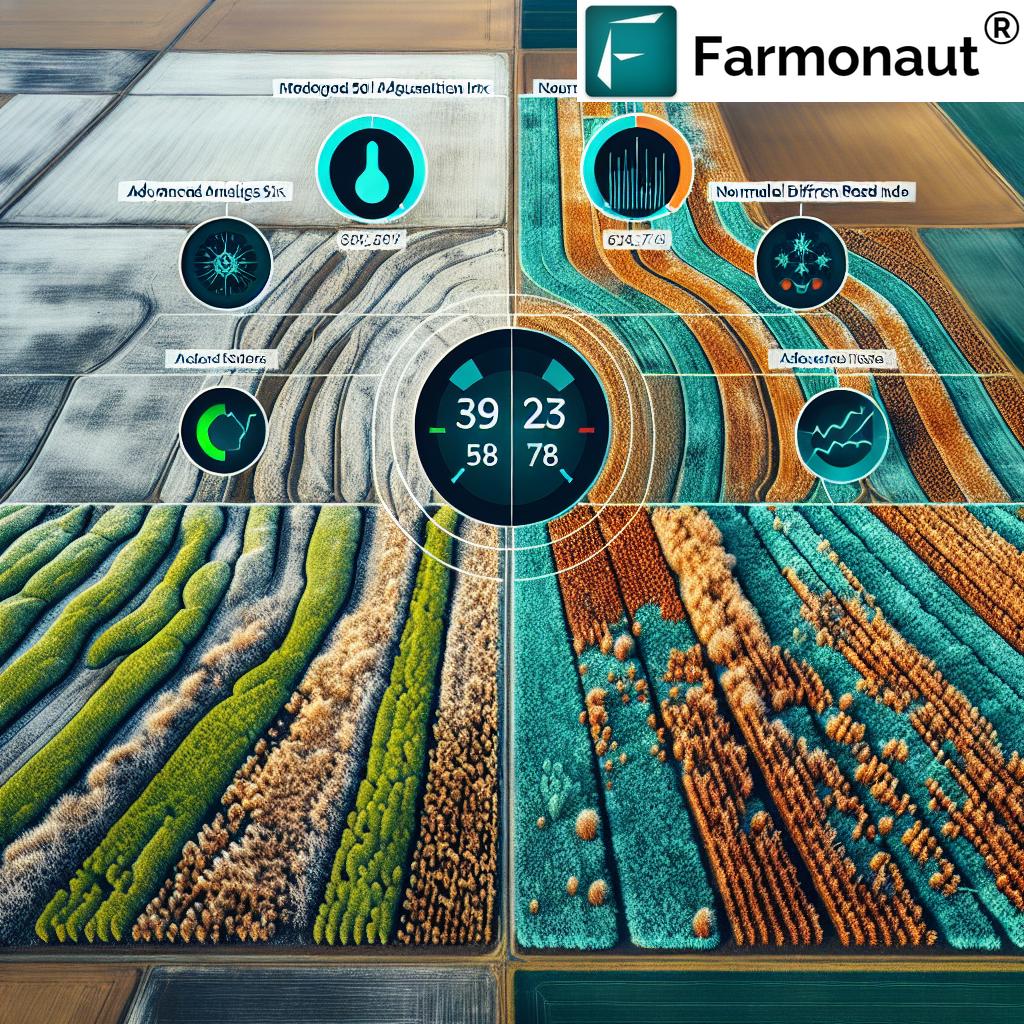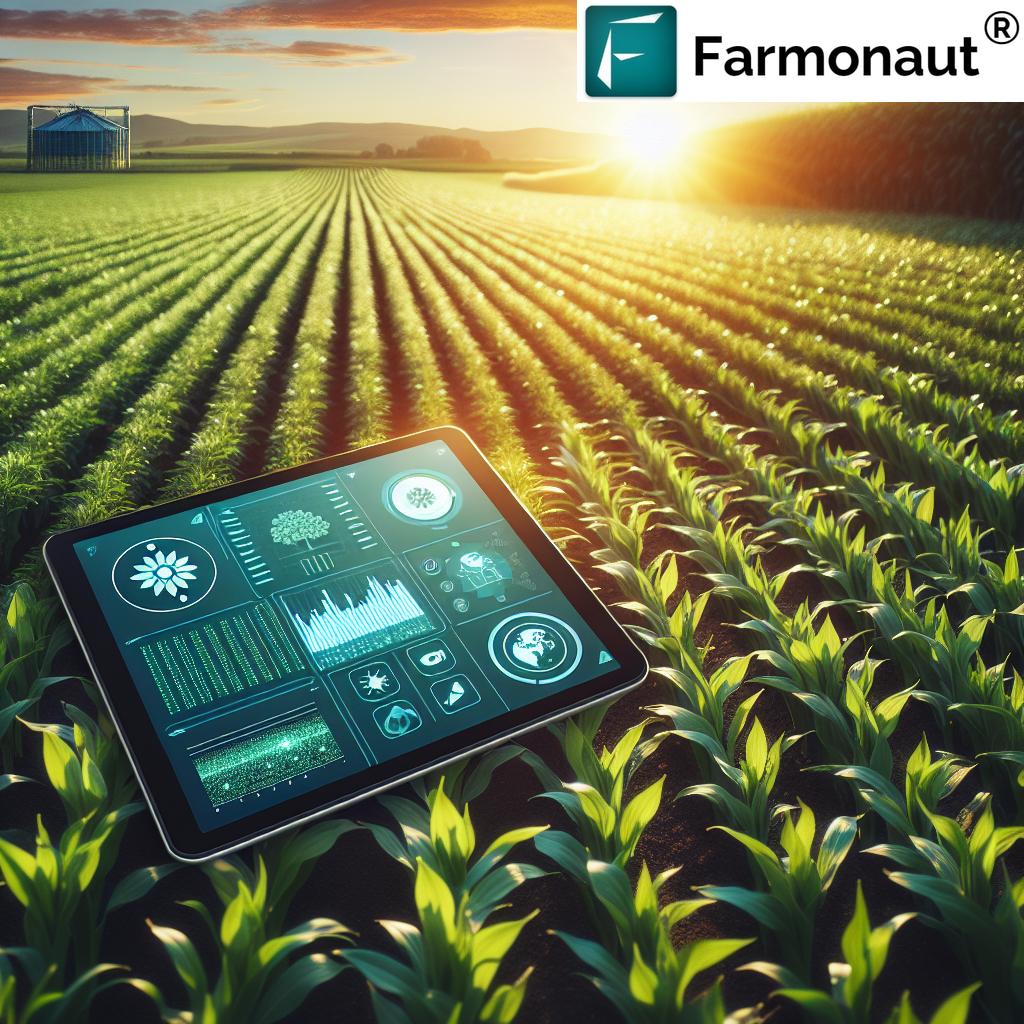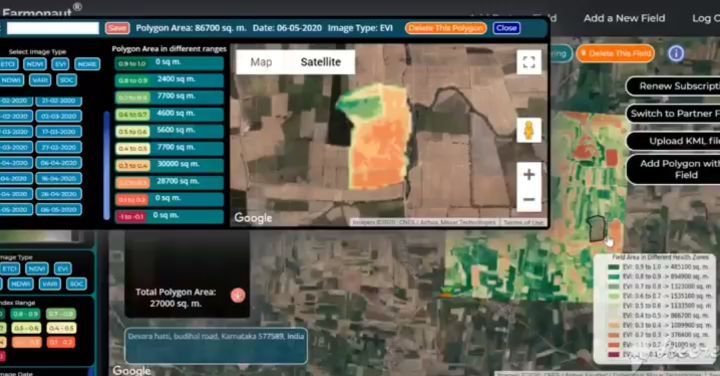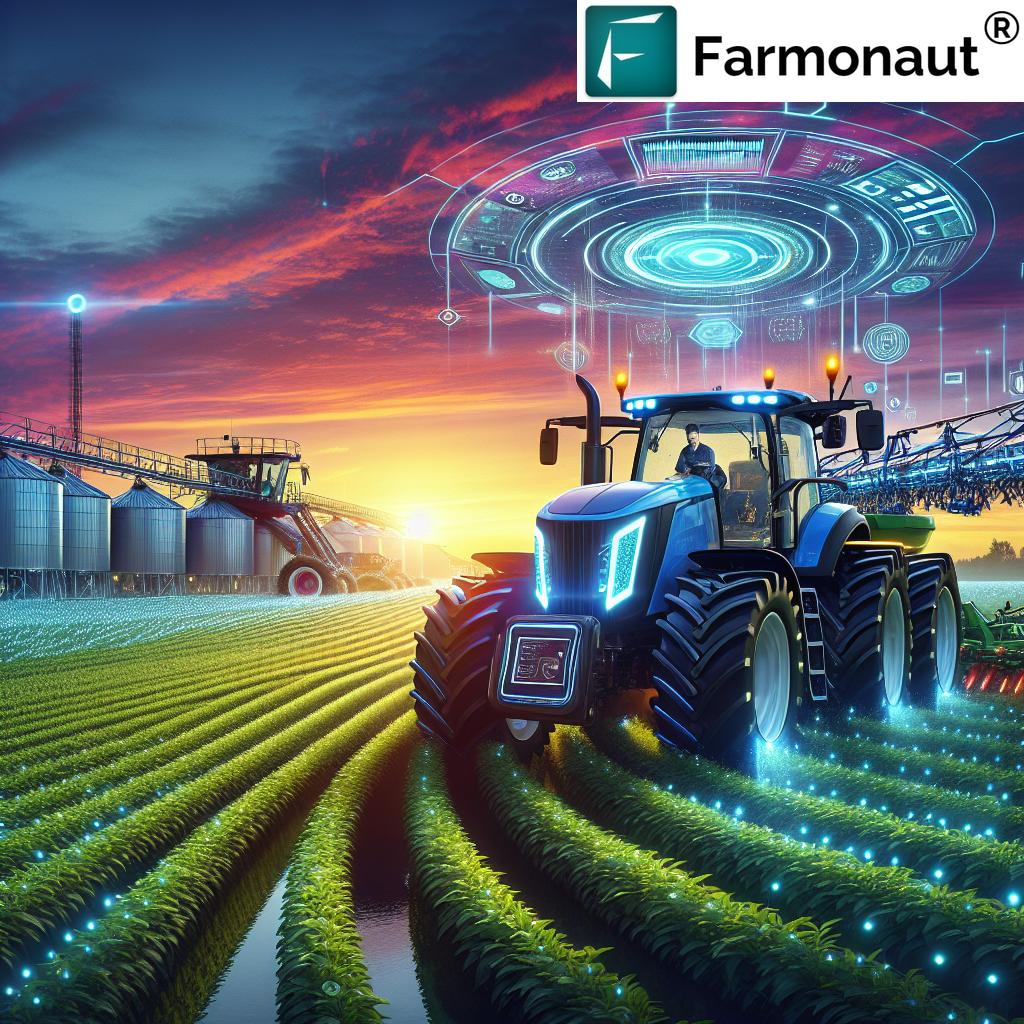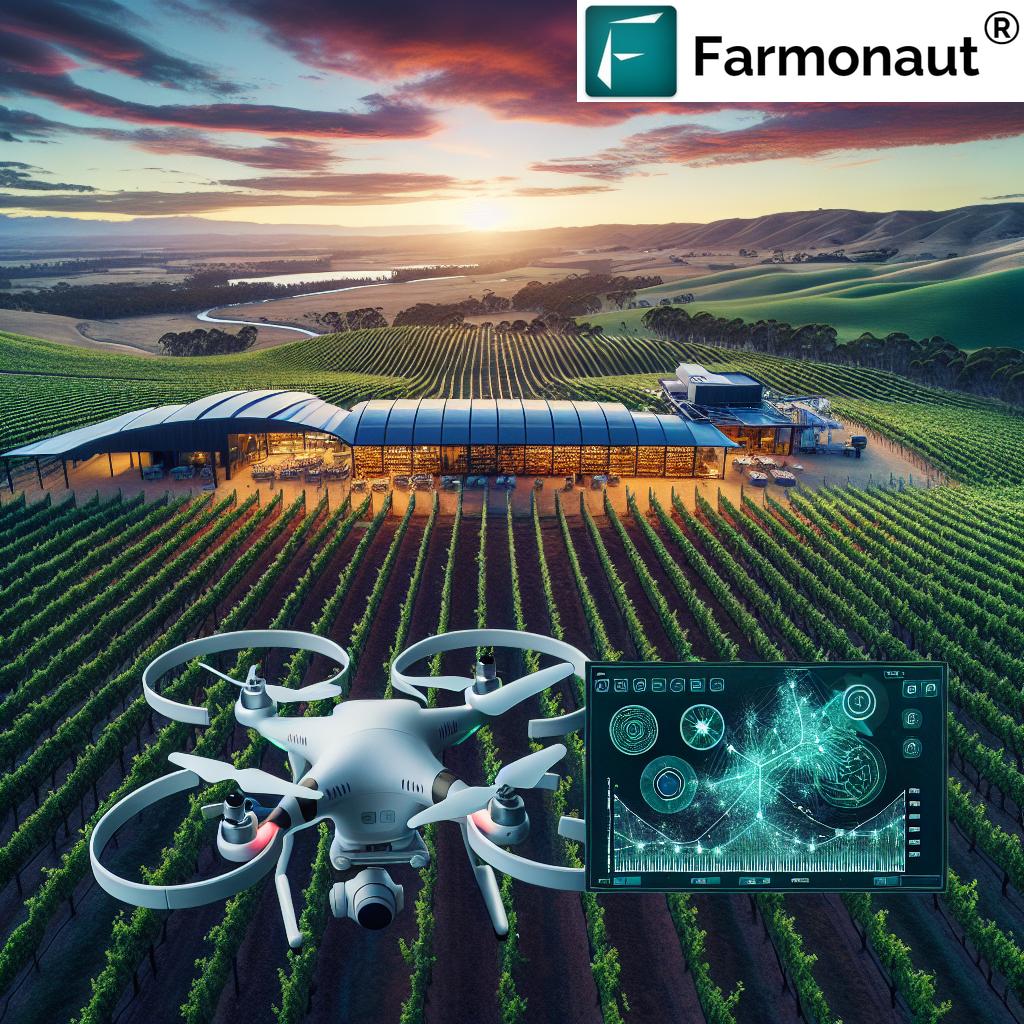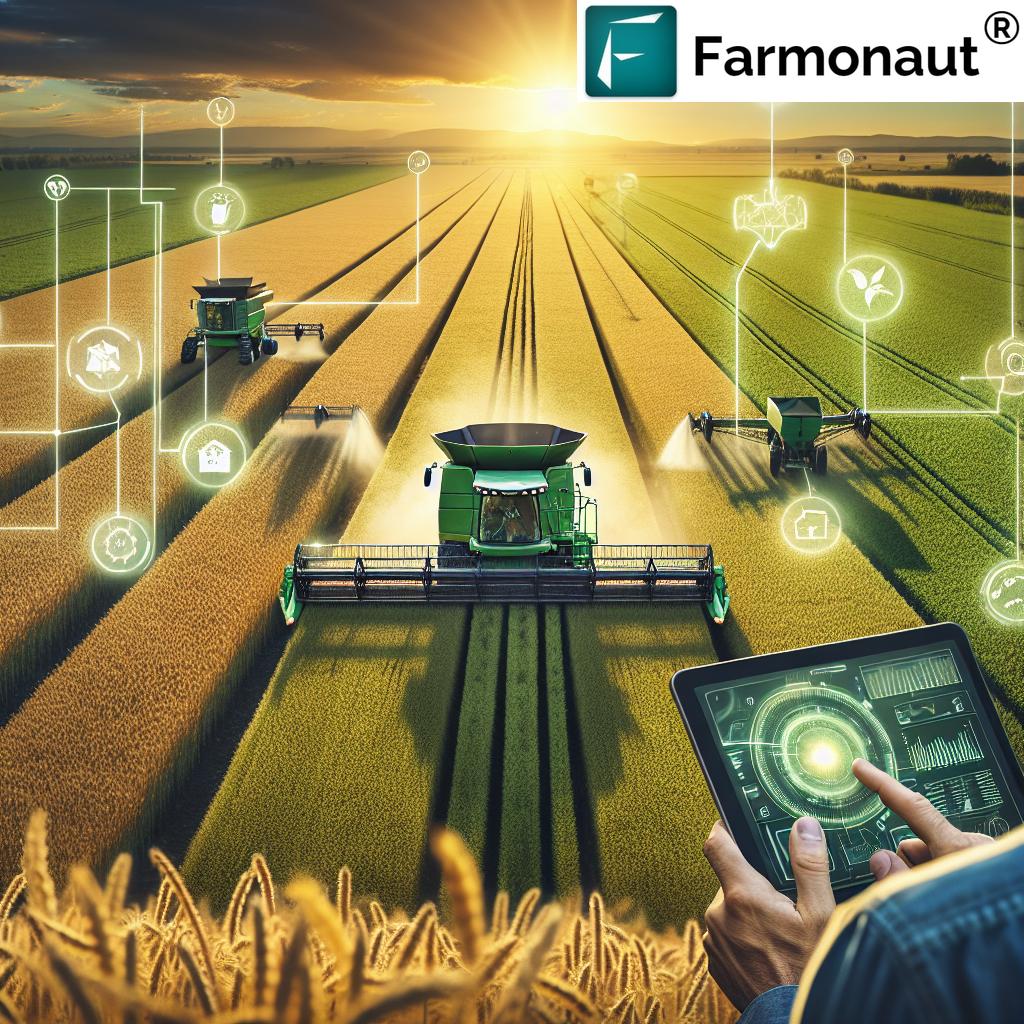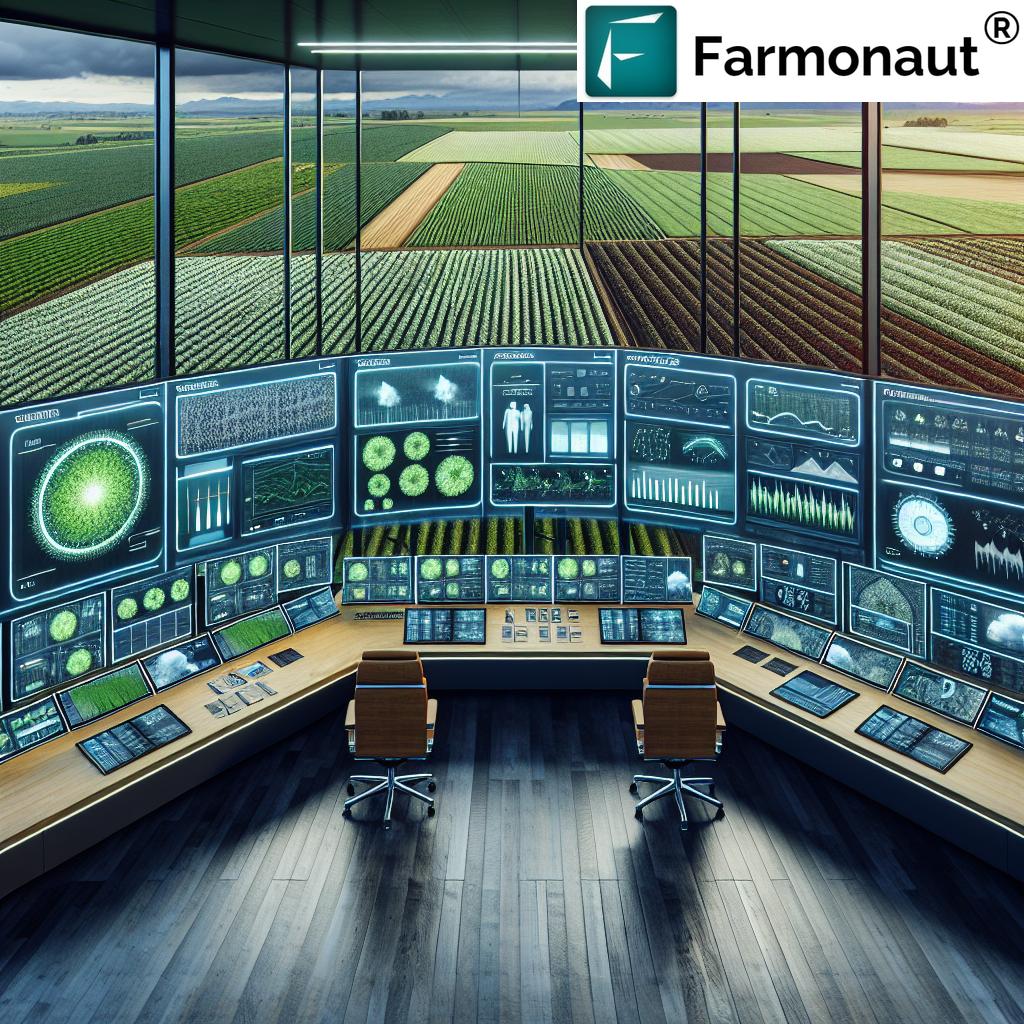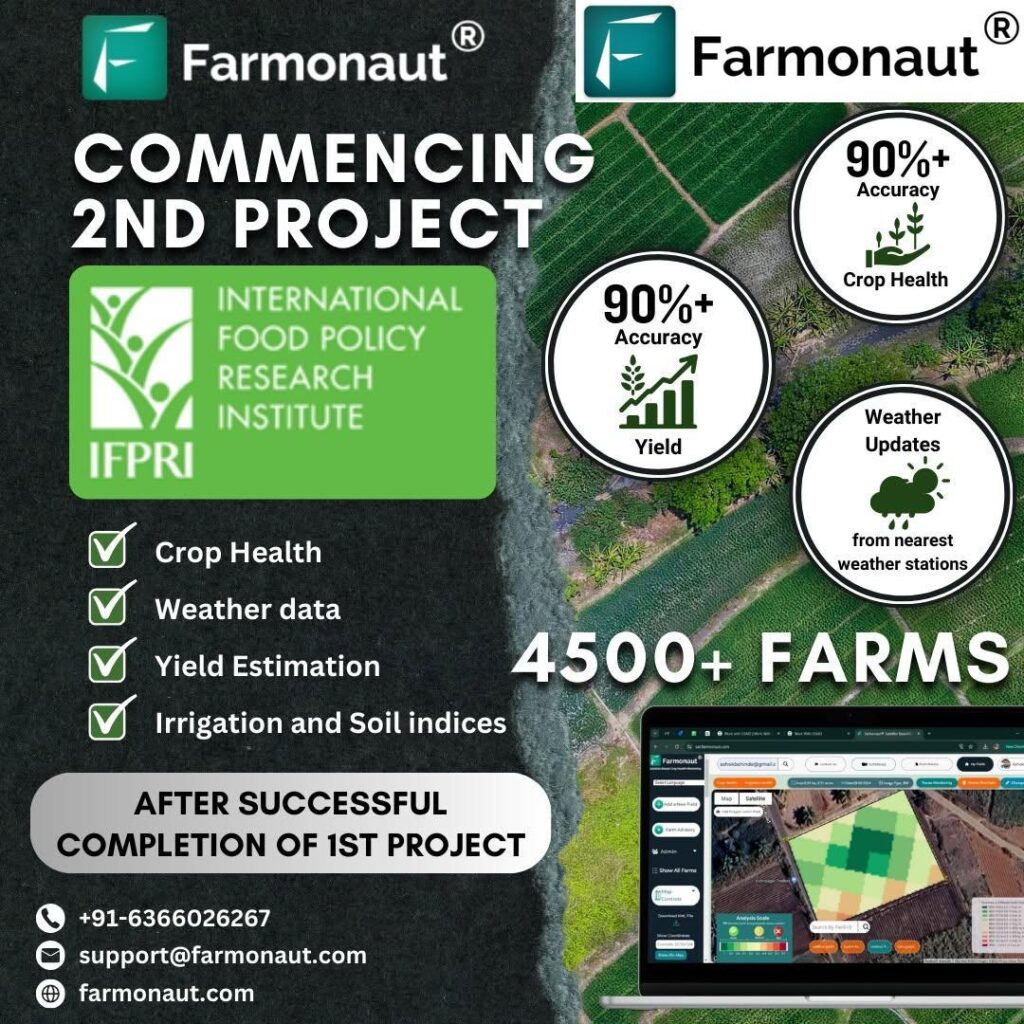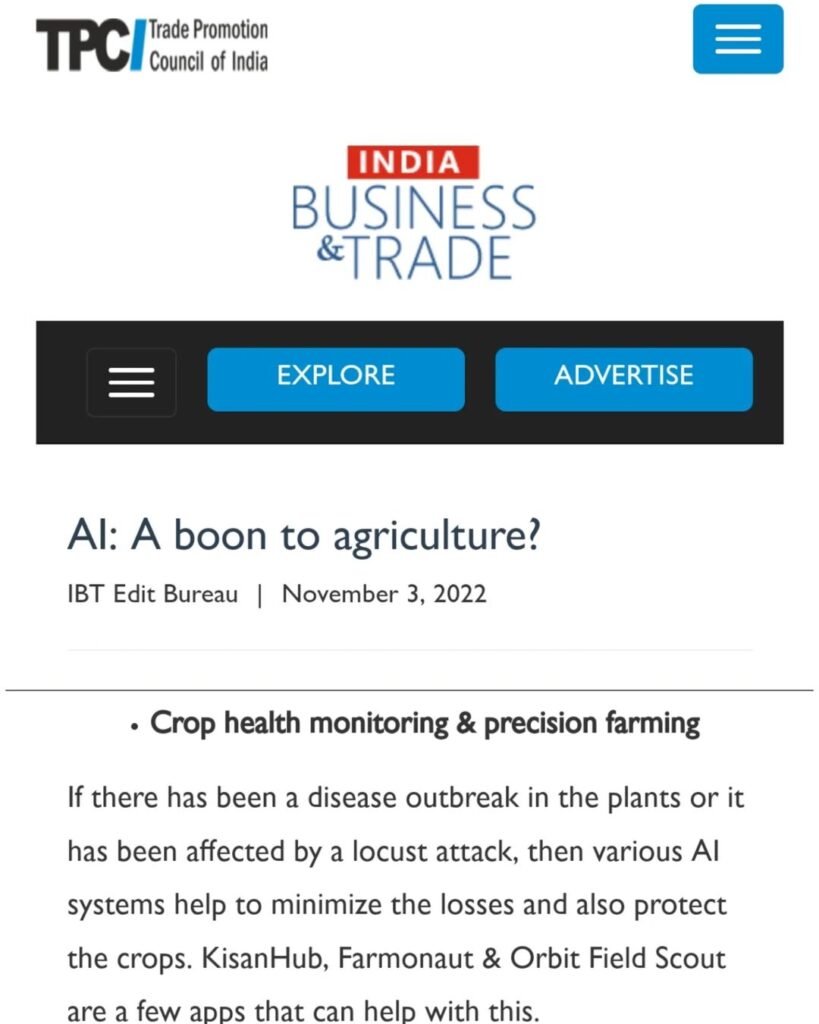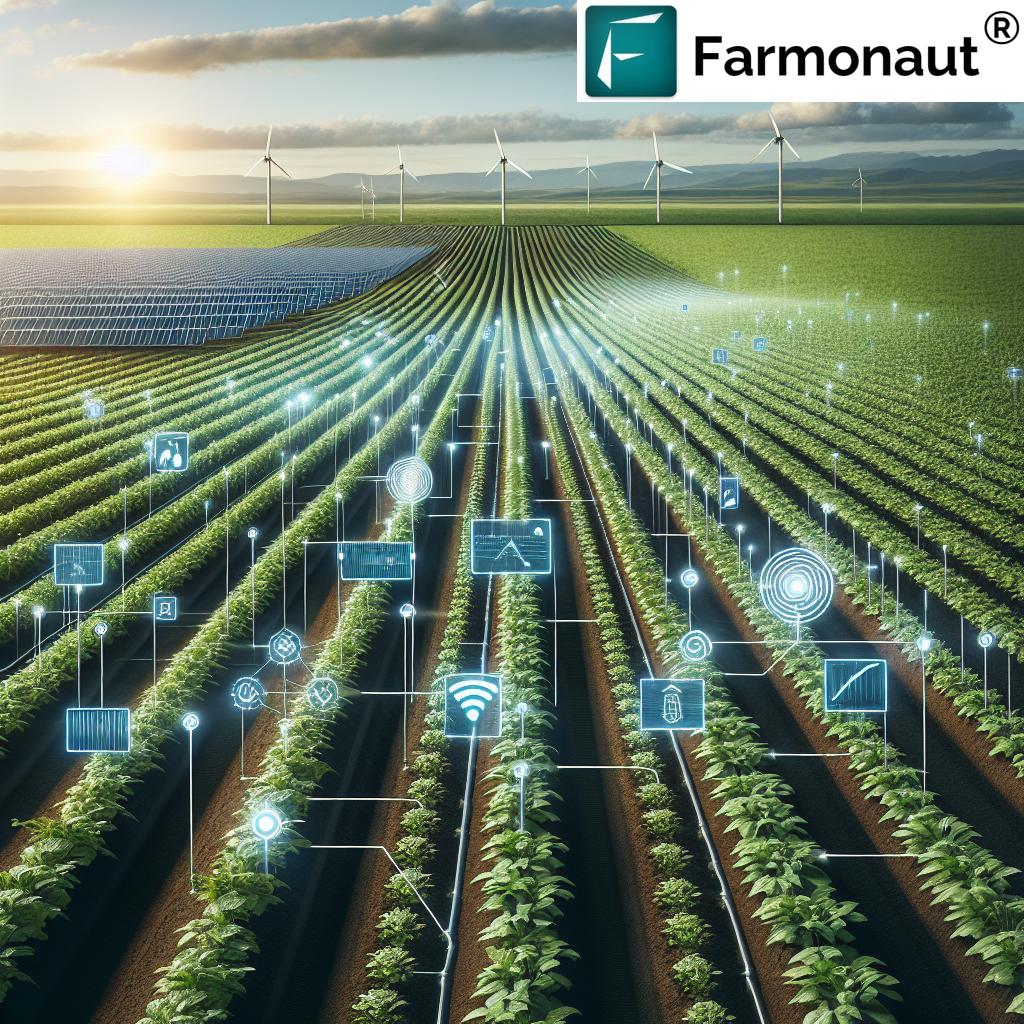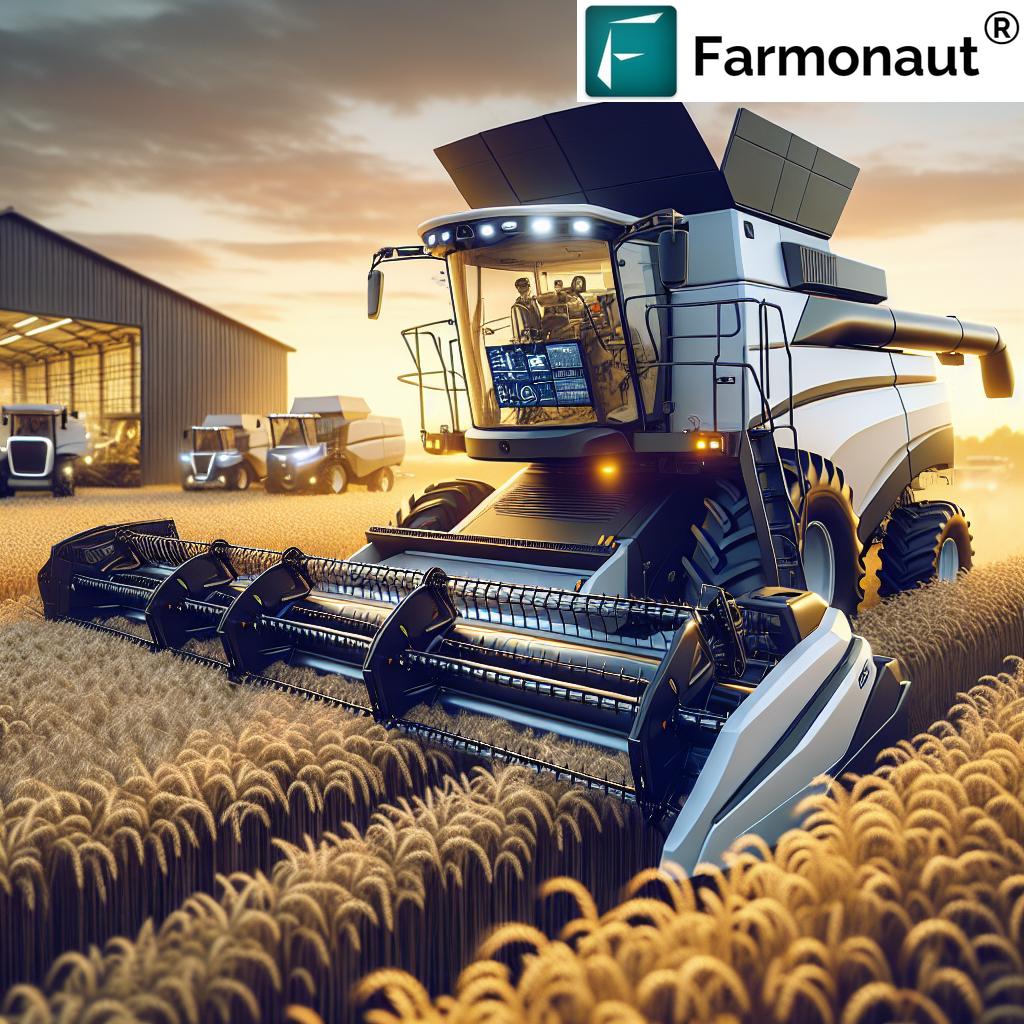Agriculture Technology Solutions: 7 Shocking Innovations!
- Introduction: The Evolution of Agricultural Technology
- Trivia: Precision Ag & Farm Management Software Adoption
- 1. Precision Agriculture: Data-Driven Efficiency
- 2. Autonomous Machinery: Future-Ready Farms
- 3. Drones and Aerial Imaging: Seeing Beyond the Fields
- 4. Artificial Intelligence & Machine Learning for Farms
- 5. Controlled-Environment Agriculture (CEA) & Aeroponics
- 6. Agrivoltaics & Biological Pest Control
- 7. Data Analytics & Farm Management Software
- Comparison Table: Key Agriculture Innovations
- Sustainable Practices & Climate Resilience
- Farmonaut: Pioneering Precision Agriculture for All
- FAQ: Agricultural Technology Solutions
- Conclusion: Embracing The Future of Farming
“Over 70% of farmers using precision agriculture report increased crop yields within the first year of adoption.”
Introduction: The Evolution of Agricultural Technology
As the global population continues to grow, the demands on food production soar. Today’s agricultural sector must not only produce more with less, but also address climate change, labor shortages, environmental pressures, and the need for sustainable farming practices.
We’re witnessing an era of rapid transformation, with agricultural technology (AgTech) introducing a broad range of innovations that are revolutionizing how farmers cultivate crops, manage resources, and ensure climate resilient farming. From satellite-powered data analytics to AI-driven crop health monitoring, the latest technologies are enabling greater efficiency, productivity, and sustainability across agriculture, forestry, and related sectors.
In this comprehensive guide, we’ll uncover the 7 most shocking innovations reshaping modern farming, empowering us all to optimize yields, reduce waste, and secure a resilient future for agriculture.
1. Precision Agriculture: Data-Driven Efficiency
Precision agriculture is transforming how farmers plant, nurture, and harvest crops. By utilizing Internet of Things (IoT) devices, satellite connectivity, and advanced data analytics for farmers, we can optimize every stage of the crop cycle.
- Critical Data Collection: Devices collect information on soil type, moisture levels, nutrient content, and local microclimate.
- Data-Driven Decision Making: Uses satellite imagery (like Farmonaut’s platform) for real-time crop health analytics and predictions.
- Predictive Planting: Identifies optimal planting and harvest times to maximize yield and minimize waste.
- Targeted Resource Allocation: Precision irrigation and fertilizer application reduces resource usage and costs while boosting efficiency.
By leveraging precise and timely information, farmers can make informed choices, significantly improving their productivity and sustainability. Services like Farmonaut’s satellite-based crop health monitoring provide actionable intelligence for effective farm management — without the cost and complexity of installing expensive hardware.
Related Insight: Farmonaut’s carbon footprinting solution helps farmers track and minimize environmental impact, an essential step toward sustainable agriculture.
2. Autonomous Machinery: Future-Ready Farms
The integration of autonomous farm machinery addresses pressing challenges, including labor shortages and the demand for higher operational efficiency.
- Autonomous Tractors & Equipment: John Deere and Kubota have developed fleets of precision tractors and implements capable of automated pesticide and fertilizer application.
- AI-Powered Detection: Kubota’s technology utilizes AI to identify crop diseases and pests, allowing targeted chemical application and reducing chemical usage.
- Efficient Land Use: Autonomous technology enables 24/7 operation and “follow-the-crop” strategies, drastically enhancing farm productivity.
These advancements reduce input waste, lower labor costs, and help optimize land use.
Want to make smarter decisions on your farm’s resources and fleet? Here’s how Farmonaut’s fleet management module lets you track vehicles, optimize routes, and cut costs using real-time agricultural insights.
3. Drones in Agriculture: Aerial Imaging and Crop Intelligence
Drones equipped with high-resolution cameras are now essential tools in modern agriculture, providing a bird’s-eye view and detailed analytics.
- Crop Health Mapping: Multi-spectral images pinpoint diseased, pest-affected, or nutrient-deficient crop zones.
- Aerial Surveillance: Identify problem areas quickly and allocate interventions with precision.
- Yield Estimation: Farm management software combined with drone data can forecast yields and track growth patterns visually.
- Resource Savings: Targeted pesticide and fertilizer application minimizes chemical usage and environmental impact.
Incorporating drone monitoring with cloud-based farm management solutions elevates productivity and sustainability for farms of all sizes.
Explore how aerial imaging fits into your planting cycle. Farmonaut’s large-scale farm management suite automates satellite data collection, offering you scalable field monitoring and reporting.
4. Artificial Intelligence & Machine Learning for Farms
Artificial Intelligence (AI) and Machine Learning are revolutionizing the agricultural landscape in unprecedented ways:
- Predictive Analytics: Advanced AI tools analyze weather, soil status, satellite images, and historical data to forecast crop yields with precision.
- Early Pest & Disease Detection: Computer vision algorithms identify threats before they cause major crop loss, allowing targeted control strategies.
- Smart Advisory Systems: Farmonaut’s Jeevn AI advisory system turns raw data into clear, actionable advice on planting, irrigation, and plant diseases.
- Financial Outcomes: Forecasting tools help farmers plan for market changes, climate events, and maximize profit.
These advances enable climate resilient farming, reduce risk, and empower even smallholders to compete using technology previously reserved for large corporations.
Fast Fact:
“Farm management software adoption has grown by 35% globally since 2020, streamlining operations for millions of farms.”
5. Controlled-Environment Agriculture (CEA) & Aeroponics
Controlled-Environment Agriculture (CEA)
CEA systems redefine the future of food production by enabling year-round, high-density, and local crop cultivation:
- Optimal Growing Conditions: Crops grow under precise climate control—temperature, humidity, CO2, and light optimized for peak growth.
- Increased Yields: CEA facilities often achieve up to 20x the productivity of traditional farming per square meter, using less water and no chemical pesticides.
- Reduced Land Footprint: Vertical farms and greenhouses permit urban or peri-urban farming, slashing transportation resource usage and guaranteeing fresh local produce.
Efficient CEA management is made possible with Farmonaut’s fleet tracking for greenhouse logistics and blockchain-based traceability for food safety and compliance.
Aeroponics: Soil-Free, Resource-Efficient Growth
Aeroponics suspends plant roots in air and delivers nutrient mist directly, ensuring outstanding resource efficiency:
- Water Use Reduction: Up to 95% less water required compared to field farming.
- Maximal Growth Rate: Plants mature more rapidly due to superior oxygenation and precise nutrient delivery.
- Sustainability: Ideal for urban environments and climate change adaptation, with minimal footprint and chemical usage.
6. Agrivoltaics & Biological Pest Control: Energy Meets Eco-Resilience
Agrivoltaics (Dual-Use Solar Farming)
- Increased Land Value: Solar panels and crops share acreage, maximizing income per hectare.
- Climate Moderation: Panels shade plants, reduce evaporation, and buffer weather extremes—supporting resilience.
- Clean Energy Production: Generates renewable energy for farms and local grids, further boosting sustainability.
Biological Pest Control: Nature-based Solutions
- Pest Management Without Chemicals: Drones release beneficial insects (such as ladybugs or parasitoid wasps) as a sustainable, targeted control method.
- Integrated Pest Management (IPM): Works with precision crop monitoring to reduce pesticide usage, balancing yield and environmental health.
- Supports Biodiversity: Reduces adverse impacts on pollinators and local ecosystems.
Looking for end-to-end traceability of eco-cultivated produce? Farmonaut’s blockchain-based product traceability ensures full transparency from seed to shelf.
7. Data Analytics & Farm Management Software: The Digital Control Center
Today’s farmers have access to farm management software and data analytics tools that integrate and automate nearly every aspect of farm operations:
- Unified Dashboard: Crop health, weather, resource usage, and financials on one actionable interface.
- Smart Alerts: Receive notifications for weather extremes, irrigation needs, pest outbreaks, and harvest timing.
- Resource & Workforce Management: Allocate labor and inputs efficiently, cut waste, and maximize ROI.
- Financial Insight: Advanced analytics forecast cash flow, profit, and risk based on historical and real-time data.
Ready to centralize your field management? Farmonaut’s large-scale agro admin app brings together satellite imagery, AI insights, and operational tools for seamless, scalable farm oversight.
Comparison Table: Agriculture Technology Solutions — 7 Shocking Innovations
| Innovation | Main Function | Key Benefits | Example Use Case | Estimated Impact (Quantitative Data) |
|---|---|---|---|---|
| Precision Agriculture | Data collection through IoT & satellites for targeted farming | Boosts crop yields, resource savings, minimizes waste | NDVI mapping for irrigation & fertilizer optimization | 10–25% yield increase; 20% resource savings |
| Autonomous Machinery | Self-driving equipment for planting, spraying, harvesting | Reduces labor needs, boosts efficiency, precise chemical usage | Automated tractor for variable-rate fertilizer application | 10–40% labor cost reduction; 15% chemical savings |
| Drones & Aerial Imaging | Remote crop monitoring and disease detection from above | Early threat identification, targeted intervention, precision | Multi-spectral drone scouting for pest hot-spots | Up to 80% scout time saved; 15–30% lower input usage |
| AI & Machine Learning | Predictive analytics & automated recommendations | Increased yield, decreased losses, financial forecasting | AI crop disease detection & climate risk advisory | Reduce loss risk by 30%; boost profitability 5–10% |
| CEA & Aeroponics | Indoor/vertical farming & mist-based soil-free cultivation | Year-round production, less land, minimal water, pesticide-free | High-tech lettuce production in aeroponic towers | 20x yield/m², 95% water saving, 0 pesticides |
| Agrivoltaics | Dual-use land for solar energy + crop cultivation | Income diversification, improved crop microclimate | Solar canopies over vegetable fields | 5–15% additional income; up to 30% lower evapotranspiration |
| Biological Pest Control | Natural enemies for pest suppression | Minimized chemical input, ecosystem health, IPM support | Drone-based beneficial insect release | 30–60% reduction in pesticide use |
Sustainable Farming Practices & Climate Resilience
The path to sustainability and climate resilient farming relies on integrating advanced technologies with regenerative agricultural practices:
- AI-Driven Weather Forecasting: Helps farmers prepare for erratic weather conditions, adapt planting and irrigation schedules, and prevent losses.
- Precision Irrigation: Advanced monitoring reduces water usage, cuts costs, and enhances yields, especially in drought-prone regions.
- Regenerative Agriculture: Practices like crop rotation, cover cropping, and minimal tillage, boosted by digital monitoring, restore soil health and carbon sequestration.
- Real-Time Carbon Tracking: Farmonaut’s carbon footprinting modules enable businesses to quantify and cut emissions, ensuring compliance and eco-friendly branding.
Adopting these solutions supports increased food security and the long-term resilience of local and global food systems.
Farmonaut: Pioneering Precision Agriculture for All
At Farmonaut, our mission is to democratize affine precision agriculture and modern farm management software. Our platform empowers everyone—individual farmers, agribusinesses, and even government agencies—to harness data-driven farming at an affordable cost.
- Satellite-Based Crop Health Monitoring: Make informed decisions about irrigation, fertilizing, and pest management using NDVI, soil moisture, and vegetation indices—all without complex hardware installation.
- Jeevn AI Advisory: Get personalized, real-time advisories on crop health, weather, and input recommendations—delivered via mobile or web app.
- Blockchain Traceability: Deliver supply chain transparency for logos and proof-of-origin, crucial for consumer trust and compliance in food, textile, and allied industries.
- Resource & Fleet Management: Cut operational costs with robust vehicle and asset monitoring modules.
- Real-Time Carbon Footprinting: Essential for achieving global sustainability standards.
- API Access: For developers/agribusinesses, Farmonaut API and API Developer Docs facilitate seamless integration into custom platforms and research applications.
- Financial Solutions: Satellite data-backed crop loan and insurance verification improves access and security for all stakeholders.
Who benefits? Everyone—from smallholder farmers seeking affordable precision monitoring, to large plantations optimizing labor, input, and output at scale. Businesses can start quickly with carbon tracking, traceability, or adopt full-spectrum large-scale management solutions as operations grow.
Download our free Android & iOS apps today or integrate our API to transform your farm’s efficiency and sustainability.
Frequently Asked Questions (FAQ) – Agriculture Technology Solutions
What is precision agriculture?
Precision agriculture (PA) refers to the use of digital tools, IoT devices, and satellite imagery to collect data on crops, soil, and environment. This information allows farmers to make precise, resource-efficient decisions about irrigation, fertilization, pest management, and harvest timing, resulting in better yields and sustainability.
How do drones and aerial imaging improve farming?
Drones in agriculture provide high-resolution, real-time images of fields. They help farmers quickly identify disease outbreaks, pest infestations, or nutrient deficiencies so targeted interventions can be made, reducing costs and boosting crop yields.
What benefits does farm management software offer?
Farm management software centralizes data from multiple operations—crop health, weather, logistics, finances—to enable smart, timely decisions. It helps streamline workflow, automate tasks, and maximize efficiency and profitability.
How do autonomous machines address labor shortages?
Autonomous farm machinery, such as self-driving tractors and robotics, can perform planting, spraying, and harvesting with little human intervention. This reduces dependency on manual labor while precisely applying inputs, saving costs and time.
How does Farmonaut’s technology work?
Farmonaut uses satellite-based monitoring, AI advisories, blockchain, and machine learning to provide farmers with real-time insights into crop health, soil moisture, weather, traceability, and environmental impacts. The platform is accessible via mobile and web apps, making precision farming more affordable and scalable for everyone.
Why is climate resilience important in farming?
With climate change causing unpredictable weather and extreme events, farms face increasing risk. Technologies like precision forecasting, smart irrigation, and sustainable practices ensure farms can adapt, maintain productivity, and protect livelihoods.
Can I use Farmonaut in any country?
Yes! Farmonaut’s solutions are globally accessible via Android, iOS, web apps, and API, making it easy for farmers and businesses worldwide to embrace advanced, data-driven agriculture.
Conclusion: Embracing The Future of Farming
The integration of agricultural technology solutions—from precision agriculture and autonomous machinery to advanced farm management software—is revolutionizing the way we cultivate, manage, and sustain our food systems. By adopting these innovations, we can enhance farm efficiency, secure higher yields, reduce environmental impact, and build lasting climate resilience for the generations to come.
Whether you’re a smallholder or an enterprise, now is the time to embrace the power of data, AI, and innovation to optimize operations and safeguard the planet’s future food supply.
Ready to get started?
Download Farmonaut’s App or explore our API to lead your farm into the data-driven age!


